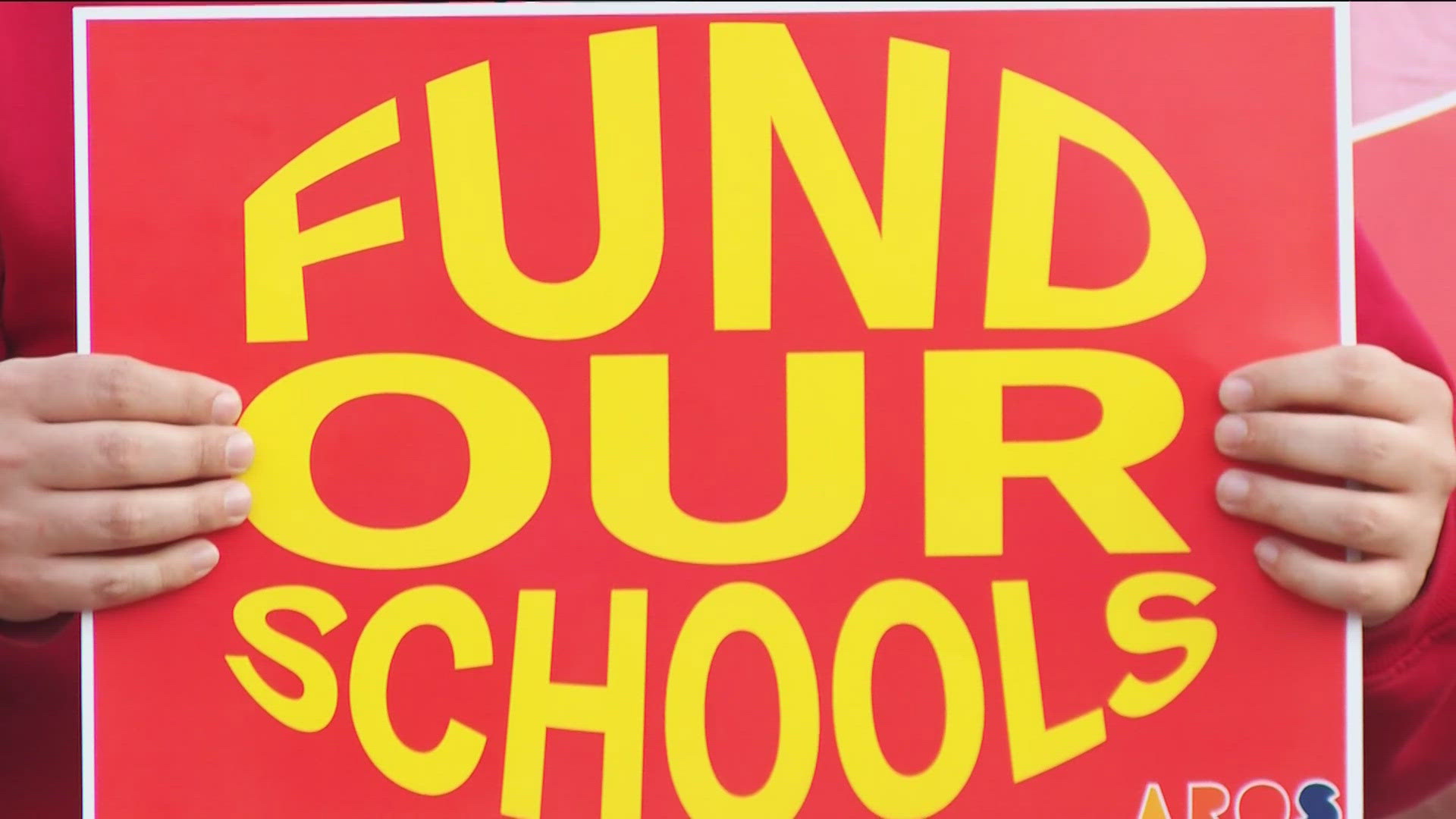ST PAUL, Minn. — With the expiration of COVID relief funding on Monday, district and union leaders in St. Paul and Minneapolis warned of cuts to programs and rallied in support of Congressional legislation to replenish the money.
The educators held two separate press conferences outside school buildings in both cities, joined each time by National Education Association president Becky Pringle. Democratic Rep. Ilhan Omar spoke at the Minneapolis news conference, while Democratic Rep. Betty McCollum attended the second one in St. Paul.
Both Omar and McCollum have co-sponsored legislation to continue the funding that had flowed to schools across the country under Elementary and Secondary School Emergency Relief, commonly known as ESSER, which totaled nearly $200 billion nationwide. Minneapolis and St. Paul each received more than $200 million over the past three years.
Interim St. Paul superintendent Dr. John Thein said the funding helped his district pay for after-school, summer and reading programs, among other initiatives.
"The unprecedented and much-needed funding allowed us to do great work on behalf of our 33,000 students and their families," Thein said, "who experienced much hardship of interruption in learning — trauma that COVID brought on in March of 2020."
In St. Paul, McCollum touted her support of the Keep our PACT Act, which would boost Title I funding for districts serving low-income families as well as special education over the course of 10 years.
"We have a plan in the Democratic caucus to keep moving funds forward. It's not going to be under an emergency relief act anymore," McCollum said. "We have a plan, it's called Keep our PACT Act, and it will create a 10-year path to fully fund both Title I and Individuals With Disabilities of Education Act."
However, the legislation does not have support from Republicans, who control the House of Representatives.
Bill Walsh, the director of communications for the conservative-leaning Center of the American Experiment, said districts should not have relied on this COVID funding for budgets beyond the emergency.
"It was never sold as something that was going to last forever. No one should be writing budgets based on that income in the future. It was always going to be one-time," Walsh said. "Sure, use it to plug gaps, use it to get through a tough year, but it's not going to solve long-term problems and it's very irresponsible to do any kind of budgeting in that way at all."
Last year, the DFL-led state legislature also approved more than $2 billion in increased school funding statewide.
Still, some districts in Minnesota — particularly Minneapolis and St. Paul — have said they're struggling not only with the expiration of federal funding but also with declining enrollment.
A Minneapolis Public Schools spokesperson said Monday that "public schools, especially those in urban areas, are not funded at the level needed on an ongoing basis. This is why so many districts, especially those that received federal COVID dollars, are facing budget shortfalls this year."
Minneapolis has a measure on the ballot this November that asks voters whether they want to increase property taxes in order to raise $20 million, which the district said would offset some cuts.

